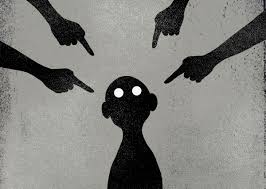
Understanding Fear: How This Powerful Emotion Shapes Your Life
What is Fear?
Have you ever felt your heart rate racing, your hands tremble, or your breath quickens when something unexpected happens? That rush of energy, the instinct to hide, run, or freeze, is fear. It is one of the oldest emotions known to humankind, hardwired into our brains to keep us alive.
Fear is the uncomfortable emotion we feel when we believe something, or someone might harm us. Whether the danger is real or imagined, fear triggers powerful reactions throughout the body. It is your built-in alarm system, nature’s way of preparing you to face or escape potential threats.
But fear is more than a biological reflex. It is also deeply emotional and personal. The things that scare us reveal our past experiences, our beliefs, and even our hopes for the future.
The Science Behind Fear
Fear begins in a small, almond-shaped structure deep in your brain called the amygdala. When it detects something that might be dangerous, it sets off the fight-or-flight response, a rapid chain reaction that increases your heart rate, sharpens your senses, and floods your system with adrenaline.
For our ancestors, this response meant the difference between life and death. But in modern life, we often experience the same physical response to non-lethal threats, like job interviews, relationship conflicts, or financial worries. Our brains react to emotional and social risks just as they would to a predator in the wild.
That is why you can feel real fear over an email, a phone call, or a thought, even when no physical danger is present.
Rational versus Irrational Fear
Fear, as we have explored, is a natural and necessary emotion. It helps us survive, react, and adapt. But not all fears serve us equally. Some fears protect us from danger, while others hold us back from living fully.
That is where the difference between rational and irrational fear comes in.
- Rational fear is based on real, possible danger.
- Irrational fear is based on imagined or exaggerated threats that exist mostly in the mind.
Both feel equally real in the moment, your heart pounds, your body tenses, but their causes and consequences are quite different.
Fear is Unique to You
No two people experience fear in the same way. What terrifies one person might barely affect another. This is because fear is not only biological; it is also shaped by memory, culture, and experience.
If you once had a frightening encounter with a dog, your brain may associate dogs with danger long after the event. Someone else might find dogs comforting. Similarly, someone raised in a calm, stable environment may react differently to uncertainty than someone who’s lived through chaos or trauma.
Your fears tell a story about you, the environment you were raised in, what you have learned, and what you value most.
The Purpose of Fear
We often see fear as an obstacle — something to overcome or suppress. But fear, at its core, is a signal. It tells us that something important is at stake. It might be your safety, pride, your relationships, or your dreams.
Fear sharpens your attention. It makes you aware. It motivates you to act, prepare, or protect yourself. The problem arises when fear takes control — when it exaggerates danger, limits your actions, and convinces you to avoid life instead of engaging with it.
The goal, then, is not to eliminate fear. It is to understand it and create a toolkit to manage it.
The Gift Hidden in Fear
If you look closely, fear is not just about danger, it is about meaning. We fear losing what we love. We fear failing at what we value. We fear not living up to who we believe we can be. We fear being judged,
That means fear is often a reflection of what truly matters most to us. When you understand your fears, you understand yourself.
Summary
Fear will always be part of life. You cannot outrun it, and you cannot ignore it forever. But you can befriend it, see it not as a signal, not as a stop sign.
Every time fear shows up, it is offering you a choice: to step back into safety or to step forward into growth. The first, keeps you comfortable. The second helps you evolve.
So, the next time your heart races and your hands tremble, take a breath and listen. Fear is not your enemy. It is a reminder you that you are alive, that you care, and that you still have something worth fighting for.
How do we manage fear? Check out this article https://livingloudonabudget.com/wp-admin/post.php?post=711&action=edit
Book a 15 minute discovery call to understand how we can help you manage fear and live out loud https://calendly.com/tanja-livingloud/30min?month=2025-10
Managing Fear: How to Transform Anxiety Into Strength - Living Loud on a Budget
[…] What is fear? https://livingloudonabudget.com/the-truth-about-fear/ […]